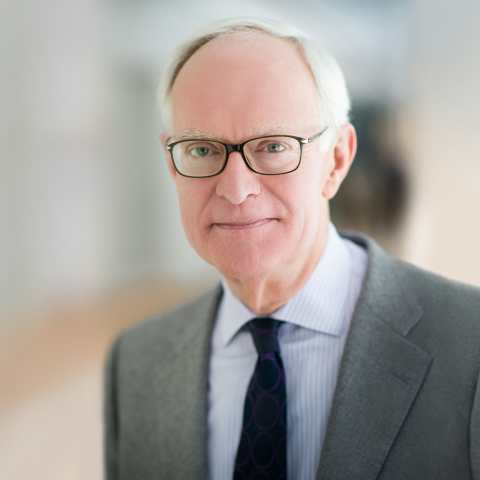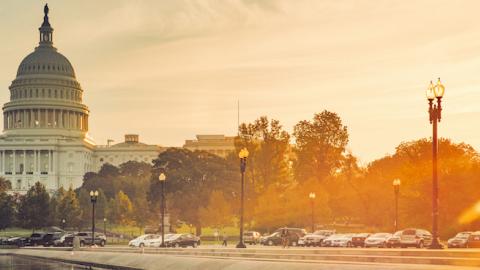__EDITOR’S NOTE: The following was adapted from remarks delivered by Christopher DeMuth upon acceptance of the Bradley Prize on April 6, 2017.__
Policy research institutes first appeared just 70 years ago — there were essentially none before the late 1940s. Most proceed from a settled philosophical disposition; some are forthrightly attached to a political movement or creed. All aim to move the world: they address themselves not only to other academics but also to government officials and the general public; they pay careful attention to the crafts of writing, speaking, and marketing; they write pamphlets. They also, as Milton Friedman first taught and practiced, incubate and stockpile reform ideas, often for long periods — until the practical world is ready for them, often in response to a crisis.
Yet all think tanks subscribe to, and the best adhere to, the intellectual virtues of reasoned inquiry and debate, openness to diverse views, and high standards of evidence, argument, and civility. Walk in the door, ask about global warming or tax reform or Taiwan, and you will get a polished, highly-informed position — but one intended to advance discussion, not shut it down.
Think tanks have risen to prominence and influence at a time when two much older institutions — the ones they are closest to — have been in decline. Universities and colleges have succumbed to demands to embrace orthodoxy and suppress open inquiry and dissent. Government and politics have succumbed to demands to regiment every aspect of society and commerce and ameliorate every difficulty of private life.
Universities and government command vast resources, are eagerly sought after, and are productive in many respects. Yet both have lost touch with their ancient and essential purposes. For higher education, these are to promote the scientific spirit, critical thinking, and the examined life in a world fraught with distractions. For government and politics: to mediate social conflict, enact laws through representation and compromise, and provide the framework for freedom and prosperity.
Our troubles in education and government have many deep causes. But they take the form of institutional troubles, such as the growth of bureaucracies. In universities, armies of diversity deans, teacher-sensitivity trainers, and student-contentment counsellors are displacing faculty —whose tenured positions are supposed to carry responsibility for upholding academic standards. In government, fleets of specialized agencies are displacing elected legislators — whose constitutional positions are supposed to carry responsibility for deliberation and collective choice.
Bureaucracies are useful and necessary, but not when they are pursuing their own agendas, free of direction from a recognized authority or establishment. They have acquired autonomy in what Robert Nisbet called the twilight of authority. Modern culture and affluence, coupled with powerful communications technologies, have generated ever-narrower and more numerous interest groups, and networks of self-reinforcing aspiration and aggravation. Bonds of society and citizenship have attenuated. Institutions of self-government, from parties to legislatures, have been disestablished by atomized, entrepreneurial politics.
To counter these forces, I advocate antidisestablishmentarianism. I have been looking for an opportunity to use that word in a sentence since fifth grade. Here is what I mean.
Intellectuals argue over right policies and norms of conduct, and over ideals of justice, identity, dignity, liberty, happiness, and consent. But all of these desirables are, in practice, products of living institutions—from the “little platoons” of family, faith, and locality to the extended institutions of government and education, and of commerce and the professions. It is in and through these institutions that norms and ideals are formed, acquired, transmitted, tested against rival conceptions, and put to practical use. Institutions are being disestablished by the forces of modernity, but we should not despair that they are irretrievably in decay. The modern world is still the place to be. The success of the think tanks tells us that institutional innovation is as possible today as technological innovation.
The think tank impresarios wanted to advance a set of policy ideas and political norms, often conservative and libertarian ones that had fallen out of favor. To do so, they had to devise a new form of organization — more hierarchal and purposive and less bureaucratic than the university, with a division of labor between management and scholarship and an irrevocable commitment to competition in ideas. These have been effective, even disruptive innovations. At the campuses, vows of reform seem to come after a strange visitor from a think tank, bearing facts and arguments students have been carefully shielded from, has been mobbed into silence or peremptorily disinvited.
In government, long-suppressed sentiments of popular sovereignty and national self-determination have made a rowdy, raucous reappearance. The atrophied institutions of the nation-state have been rudely awakened, and are now being put to the test. After last year’s elections, a friend who is a recent immigrant and enthusiastic new citizen said to me, “Your founders — excuse me, our founders — really were geniuses: they arranged things so we could have a revolution in every generation.” That, as President Trump would say, is so true. But the founders also taught us that the hardest work comes in the aftermath—in forging institutions to vindicate, and perpetuate, the revolution’s ideals.
One of President Trump’s top advisers has described his task as “deconstructing the administrative state.” That will require constructing something in its place. I think the building manifest includes a Congress with a real power structure, a revival of the legislative arts, and new mechanisms of checks and balances between Congress and Executive. It doesn’t help that those who lost in the recent elections have retreated to the hills to wage guerrilla politics against the very legitimacy of the struggling new order — but there are ways and means of dealing with this, also.
In any event, our decades of work in advancing better policy ideas have now brought us to a new journey, that of reconstituting our political institutions. It will be a perilous journey: let us apply ourselves to making it equally successful.















